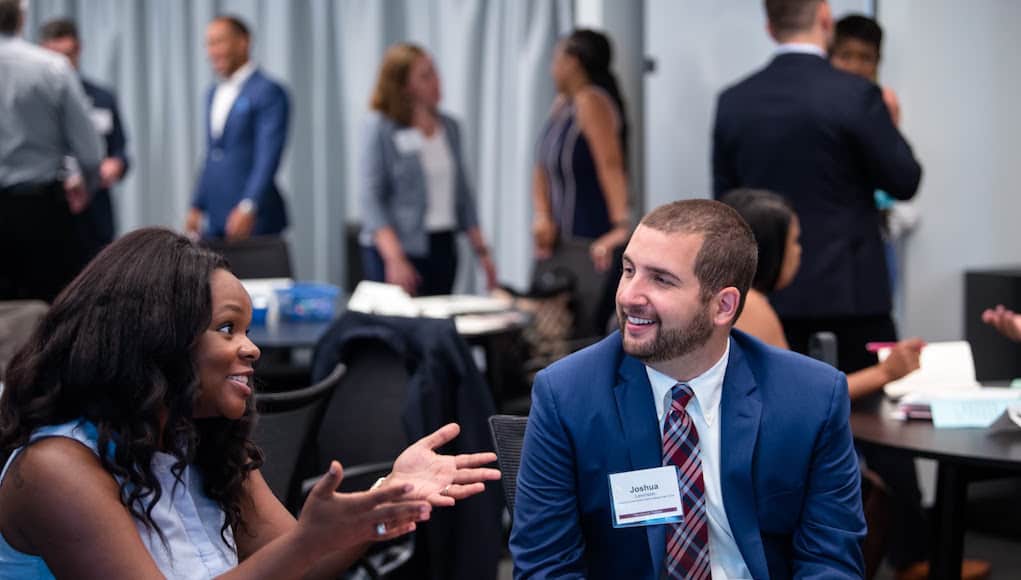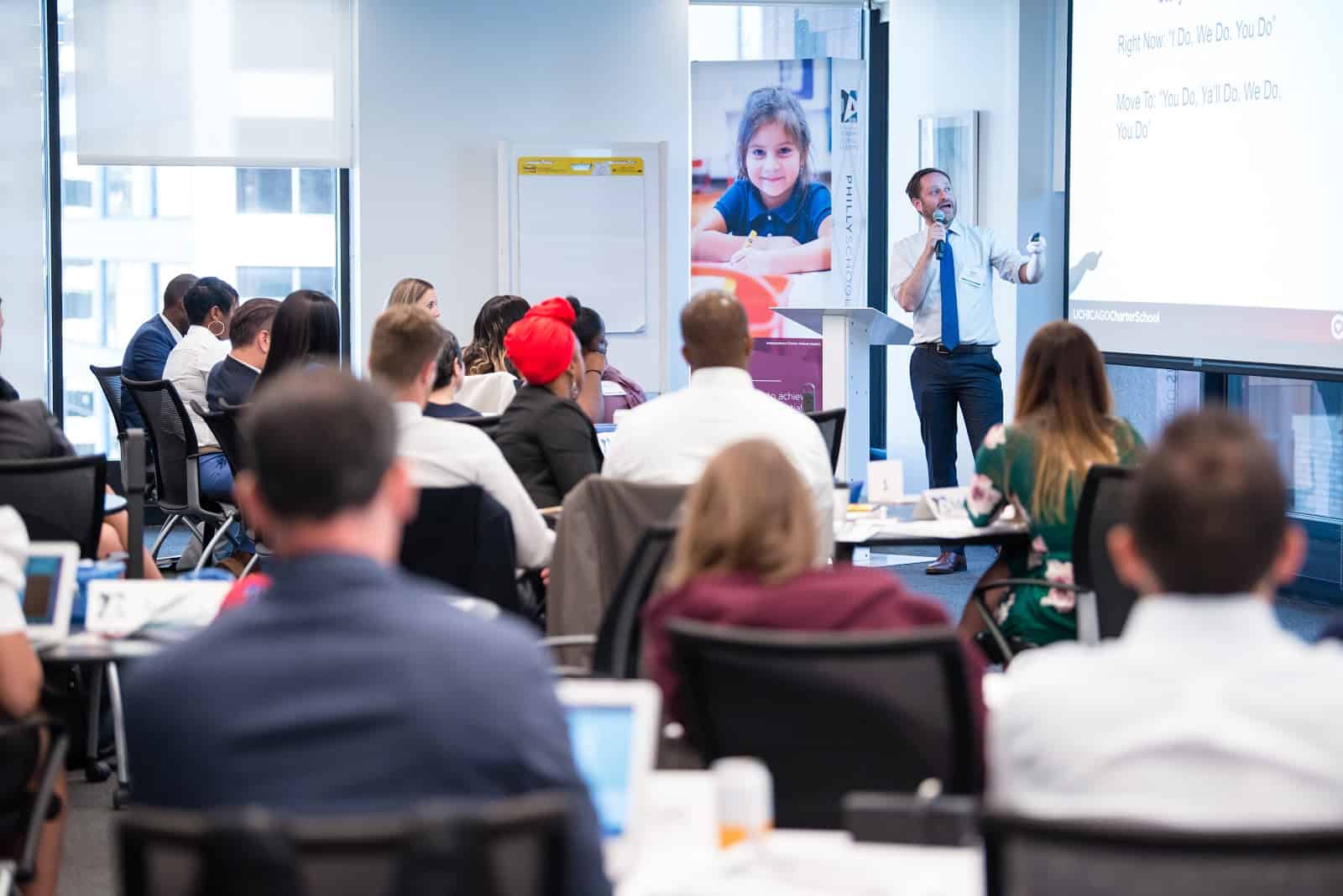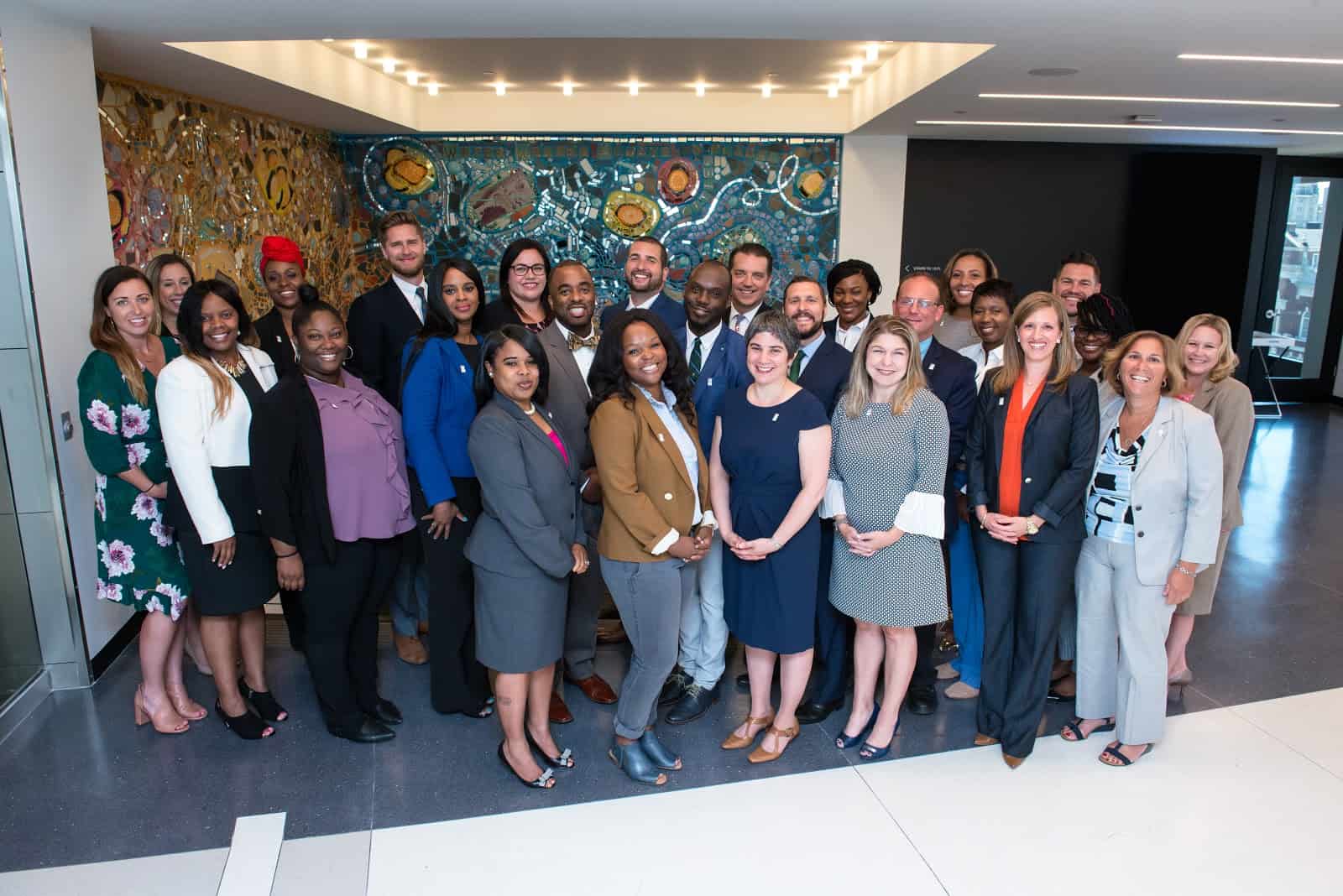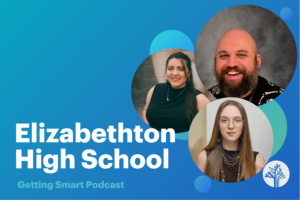Leadership Development and the Power of Networks at Philadelphia Academy of School Leaders

When we talk about professional development or professional learning in education we are oftentimes referring to learning experiences for educators. We know, however, that learning is a continuous journey for all professionals, and school leaders are no exception.
In Philadelphia, the Philadelphia Academy of School Leaders (@LeadersPHL) is engaged in high-impact leadership development work for Philadelphia’s public, charter, and private school principals. The signature program, the Neubauer Fellowship in Educational Leadership is a “two-year program for Fellows to hone skills and become entrepreneurial leaders who leverage staff talents and cultivate other partners to increase student achievement.” Fellowship components include:
- An intensive six-day Summer Institute
- Leadership workshops throughout the school year
- “Dinner with Decision-Makers” series where Fellows connect with prominent government, business, and non-profit leaders
- Support in achieving goals through collaboration with peers and staff
It has been dubbed by former Fellows as “one of the best professional developments I’ve ever gotten in my entire career” and we sought to find out why. While there are several reasons why the program is so great according to the Fellows we spoke with, two themes that emerged were: 1) the intentional focus on high-quality leadership development and 2) the power of networks.
High-Quality Leadership Development
Tracy Breslin, Executive Director of the Philadelphia Academy of School Leaders, said that the organization is “rooted in the fact that Philadelphia’s strength as a city will be in its ability to deliver quality education for all students.” Philadelphia Academy of School Leaders’ role in this is to invest in school leaders as a lever of change and also reach the entire city quickly. The organization is proving to be on track towards meeting this goal. By July 2019, they will reach nearly one-third of all Philadelphia principals and serve over 65,000 students, exceeding the initial goal of serving 100 city principals and more than 60,000 students by 2020.
The fact that the Neubauer Fellowship is two-years in length means Fellows can go deep in their learning. Institutes are held three times a year where Fellows have the opportunity to learn from education leaders such as Michael Fullan and Andy Hargreaves. At the end of each session, the Fellows are asked to make commitments. Tracy explained that commitments are often rooted in the takeaways from each session and are “the highest leverage actions that Fellows can take to make an immediate improvement in their school.” This approach is one that anyone can take at any time. While design sessions for challenges are always beneficial, it is also good practice to be able to quickly identify challenges and come up with solutions that are practical and relatively quick to execute. While the identification of challenges and subsequent solutions take place rapidly, they should have a high impact and be significant.

Image courtesy of Philadelphia Academy of School Leaders
What sets the commitments apart is the accountability that is baked in. Philadelphia Academy School Leaders’ staff follow up on each commitment Fellows make, to check their progress and offer support. The network of peers also serve as motivators to help Fellows through problems of practice, and it provides an opportunity to offer their own best practices and guidance as many have faced similar challenges in the past. Speaking about the built-in accountability, Antoinette Powell, 2016 Neubauer Fellow and principal at Robert E. Lamberton Elementary School, said that within your cohort “you share a problem of practice with your peers who have a different problem of practice, but they challenge you to look at your problem differently. It pushes you out of your comfort zone.”
The “Dinner with Decision Makers” provides a unique and intimate opportunity to connect with Philadelphia leaders from various sectors. “It is confidence-building to sit next to CEOs and high-level decision-makers to talk about leadership,” said Stephen Janczewski, 2018 Neubauer Fellow and principal at Independence Mission Schools. Tracy shared that the learning goes both ways during these conversations. Fellows learn (and share) leadership strategies, and the invited leaders get a deeper understanding of what is happening in Philadelphia’s schools. Fellows have had the opportunity to connect with Former Secretary of Education Arne Duncan, the President and CEO of the Children’s Hospital of Philadelphia, and the Owner and the Manager of the Philadelphia Phillies, to name a few.
Power of Networks
Tom Vander Ark and Lydia Dobbyns’ book, Better Together: How to Leverage School Networks for Smarter Personalized and Project Based Learning is built around the premise “that creating powerful learning is hard work and there’s no reason for teacher teams to work alone. District leaders, principals, and teachers aim to improve student outcomes, but old constraints and inadequate tools and supports make it extremely difficult to innovate at scale. The answer: working together in formal and informal networks.”
The Neubauer Fellowship is an example of what happens when school leaders are networked. The network formed by the Fellowship takes principals who are grappling with similar issues, but come from different school settings — public, charter, and private — and provides them with the tools and space to learn and innovate in a collaborative way. Formally they meet monthly during their first year of the program, and then during the second year there are quarterly institutes, and Fellows are welcome to come to any of the other events being held for the new cohort. Alumni have the same open invitation to attend events.

Image courtesy of Philadelphia Academy of School Leaders
Stephen commented, “principal work is challenging and can at times feel lonely. In this network, you are able to share learnings and successes and it has been very energizing and has made an impact on my day to day work.” He went on to say, it’s a “blessing for Philadelphia to have all sectors of schools represented; we are isolated for the most part otherwise.” Antoinette echoed Stephen’s sentiments and said, “we all — charter, public, private school leaders — have the same goals: become great leaders and change outcomes for students.” Being networked within this Fellowship provides the leaders with space and opportunity to collaboratively work on those goals. She continued by saying, “one of the most influential pieces of this professional development is the networking.”
Of the model, both Stephen and Antoinette agree that it’s powerful:
- “We are getting to a critical mass of Fellows in Philadelphia. I look forward to leveraging the network and continuing to work together in the coming years. We will impact the city in a deep way in the coming years.” – Stephen
- “This was a profound experience, and it can shift people’s careers. I think they’re on to something with this model. It’s definitely shifting the culture of Philadelphia.” – Antoinette
In Your Own Community
While every community may not have an extensive school leadership program like the Neubauer Fellowship, there are ideas from the program which can be replicated, specifically around creating networks. Here are a few steps you can take to expand your own network:
- Read up on the power of leverage networks in the Better Together book. Also, listen to Tom and Lydia’s podcast.
- Check out our Network Effect series which “explores how formal and informal networks improve learning outcomes for students and create an opportunity for high-quality, personalized learning at scale.”
- Expand your network virtually through a Twitter chat. Here’s a listing of chats created specifically for administrators.
- Reach out to administrators within your city or state, and consider starting your own network to work through problems of practice.
- Go on school visits — they provide an excellent opportunity to network and learn.
- Get plugged in with local business leaders in your area. Check with your local Chamber of Commerce or Rotary Club to see how you can get connected or plugged in with those leaders.
For more, see:
- Better Together: Why Schools Should Work in Networks
- The Progressive Schools of Philadelphia
- The New Work of Network Leadership
Stay in-the-know with innovations in learning by signing up for the weekly Smart Update.





0 Comments
Leave a Comment
Your email address will not be published. All fields are required.